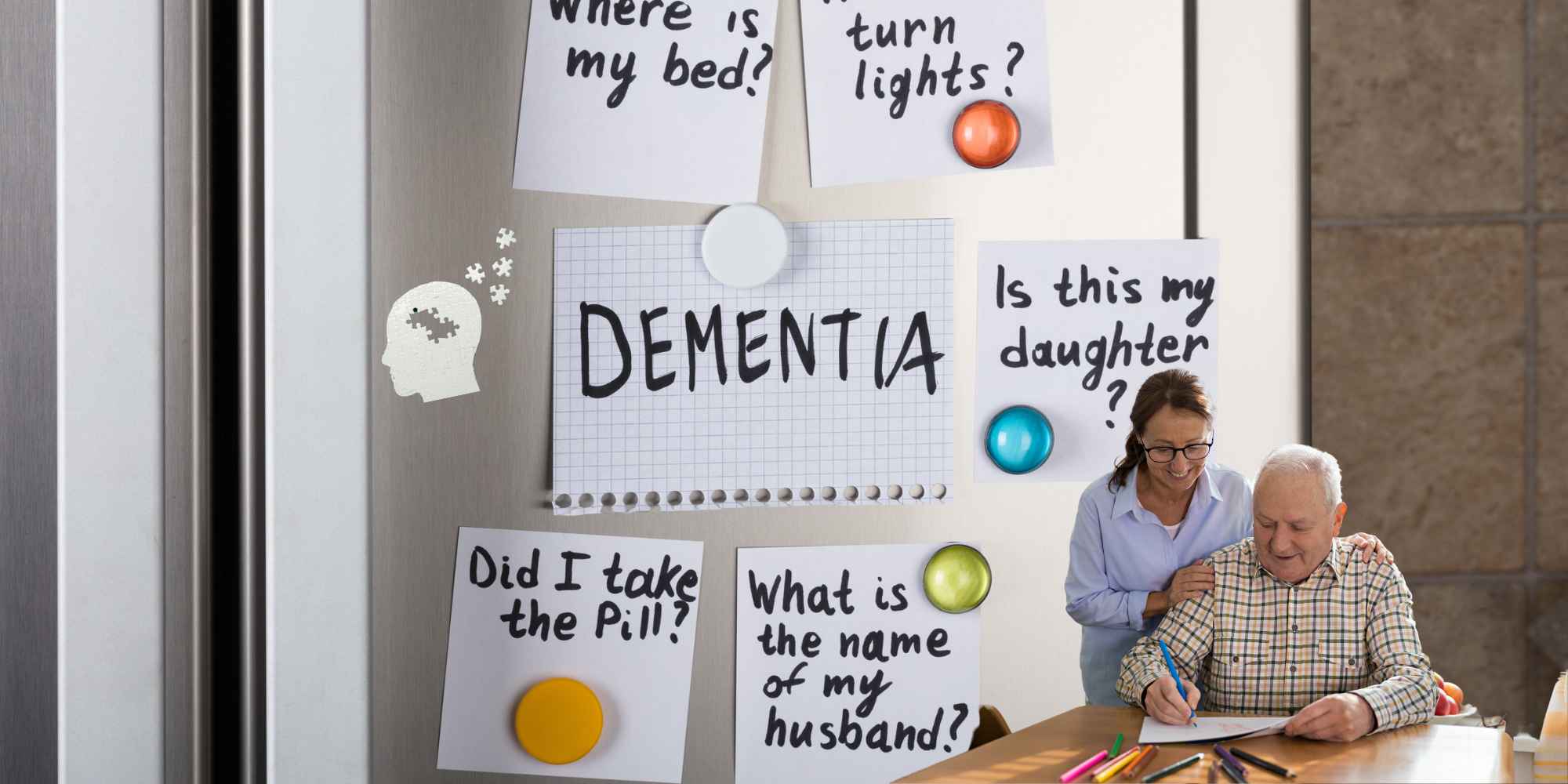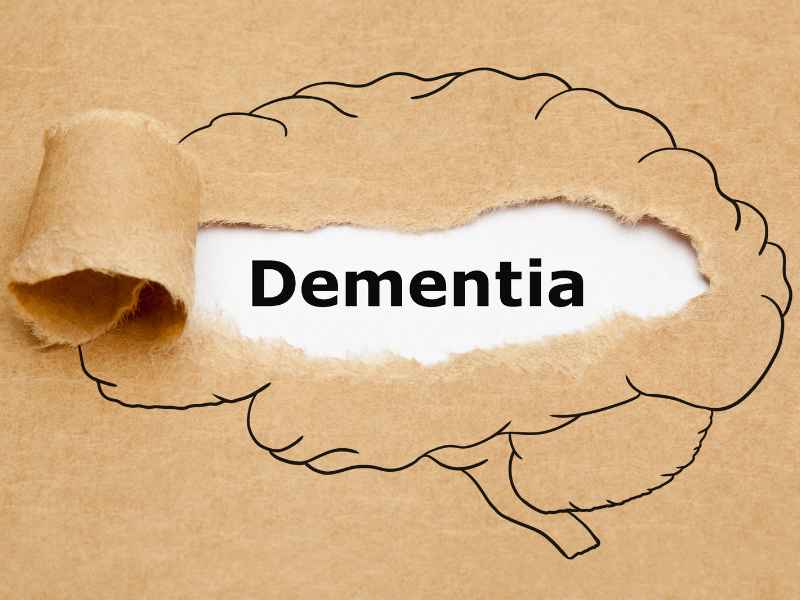How Dementia Affects Speech, Language, and Communication
Dementia reshapes communication. It changes speech, language, and understanding. Read this guide for strategies to foster meaningful connections with your loved ones. Also, learn how speech therapy may be beneficial.

Imagine this. You're sitting down with your grandmother. You're sharing a wonderful conversation. These chats you share are some of your most cherished moments. Her stories weave a tapestry of wisdom and history. But lately, these conversations have changed.
She struggles to find the right words. She repeats stories and may invent new words. Sadness and loss flood your mind. That's a reality for many families dealing with.
In this article, you'll learn how dementia affects speech and language. You'll help you and your loved ones traverse this heart wrenching journey. By sharing this knowledge, we can support each other. Let's ensure that our loved ones continue to feel heard and understood.
What is Dementia?

Dementia affects the brain. It refers to a decline in mental ability severe enough to interfere with daily life. It's an umbrella term that covers a wide range of medical conditions. Dementia describes a group of symptoms. These symptoms affect memory, thinking, and social abilities [1].
Overview of Dementia
Dementia is caused by damage to brain cells. This interferes with how cells communicate with each other. What surfaces is difficulties with thinking, behaviour, and feelings.
The brain has many distinct regions. Each region handles different functions. They cannot carry out its functions normally when they're damaged [1].
Dementia comes in various forms.
- Alzheimer's disease is the most common. It's characterised by gradual memory loss.
- Vascular dementia affects thinking skills due to reduced blood flow to the brain. It often follows a stroke.
- Lewy body dementia is characterised by protein deposits in the brain. It can cause hallucinations and movement issues.
- Frontotemporal dementia is due to degeneration in the brain's frontal and temporal lobes. It leads to personality changes and language problems.
Common Symptoms of Dementia
Symptoms may vary. They commonly include problems with short-term memory. Someone with dementia may misplace keys, forget to pay bills, or lose track of medication. Many conditions are progressive. Signs of dementia emerge slowly. They gradually worsen with time. These complications with dementia can take years to develop.
Other common cognitive difficulties include [2]:
- difficulty speaking, understanding, reading, or writing
- difficulty with visual and spatial abilities
- difficulty in reasoning and problem solving
- poor balance and movement coordination
- confusion and disorientation
Psychological changes may also occur. People with dementia may exhibit personality changes, or show signs of depression and anxiety. They may engage in inappropriate behaviour. They may also exhibit paranoia, agitation, and hallucinations.
Do you experience memory difficulties or notice that in others? Don't ignore those signs. See a doctor soon to determine the cause.
How Dementia Affects Communication

Dementia affects not only a person's memory. They experience a symptom called aphasia. It's a disorder that makes communication difficult. It affects their ability to understand, read, write, and speak. This can complicate things for both the person with dementia and their loved ones.
As dementia progresses, it inhibits their ability to speak. This is not just about forgetting a word or a name. It's more profound. This changes their ability to express thoughts and understand others.
There are ways to maintain a connection and communicate effectively with them. Understand these changes, and you can better communicate with them.
Difficulty Finding the Right Words
Difficulty with communicating thoughts is an early symptom [3]. Someone with dementia may struggle to find the right words during a conversation. They could forget a word or use the wrong word. Their speech may sound unclear or nonsensical.
Having a conversation with a person who has dementia can be challenging. They may have a hard time explaining something or expressing themselves. It may take longer for them to communicate what they think or feel.
Repeating Phrases and Stories
Repetition is common with dementia. This is due to memory loss and general behavioural changes. They may repeat daily tasks, such as bathing or dressing. They may collect items obsessively. You may notice them repeating the same questions in a conversation or tell the same story again.
Look for reasons behind the repetition. It may be the time of day or that they're trying to communicate something. Stay calm and reassure them. Make use of memory aids, such as notes and pictures. These offer effective reminders and are easy to implement [4].
Inventing New Words
Sometimes, people with dementia may invent new words [3]. This could happen when they struggle to find correct terms. This isn't a display of playful linguistic ability. It's a coping mechanism. This is how they deal with the challenge of finding the right words.
Losing Track of Conversations
It's normal to lose yourself following storylines. People with dementia can find it hard to understand speech. They'll often struggle to follow along with conversations or TV programs. They may lose their train of thought while speaking. This makes following a conversation challenging. They especially struggle to keep up with fast-paced or complex conversations.
Relying on Gestures More Than Speech
Finding the right words becomes more challenging over time. Some people with dementia may rely more on non-verbal communication. This may include using gestures or facial expressions. This isn't a conscious choice to be more expressive. It's using alternative courses. It's driven by the increasing difficulty of using verbal language to communicate.
Types of dementia and their impact on speech
Dementia is not a single disease. The type of dementia can affect a person's speech and language abilities differently.
Alzheimer's Disease

In the early stages, someone with Alzheimer's may struggle to find the right word or forget names. As the disease progresses, they may have difficulty having a conversation. People with Alzheimer's speech may become progressively less clear.
Vascular Dementia
Vascular dementia occurs due to reduced blood flow to the brain. It's often after a stroke or a series of mini-strokes. It can cause problems with speed of thinking, concentration, and communication. This can limit a person's ability to participate in conversation.
Lewy Body Dementia
Lewy body dementia is caused by abnormal deposits of the protein alpha-synuclein, called Lewy bodies [5]. It can lead to a range of symptoms. There may be changes in alertness and attention and visual hallucinations. They may experience problems with movement and coordination.
In terms of speech, individuals may have difficulty finding the right words. They may exhibit speech problems and speak more slowly.
Frontotemporal Dementia
Frontotemporal dementia is associated with abnormal amounts or forms of the proteins tau and TDP-43 [6]. It's less common and affects primarily younger people. It can affect a person's personality, behaviour, and language skills.
People with frontotemporal dementia may struggle to find the right words or understand words. They may speak less.
Coping Strategies for Individuals and Caregivers
Living with dementia or caring for someone with dementia can be challenging. However, there are strategies that can help you cope with the situation.
Maintain a Positive Communication
Use simple and clear language, maintain eye contact, and listen attentively. Avoid arguing or correcting unnecessarily. Instead, try to enter their reality. Engage in a way that makes them feel understood and respected.
Establish Healthy Routines
Having a daily routine can provide a sense of structure and security. Try to keep consistent times for regular activities. This includes waking up, mealtimes, and bedtime. Involve them in daily activities as much as they're able. Help them maintain a sense of independence.
Regular physical activity and a healthy diet improves our overall health. It does wonders for a person with dementia. It can also help manage symptoms, improve mood, and help sleep quality [7].
Create a Safe and Comfortable Environment
Keep their living environment is safe and comfortable. Remove tripping hazards, install safety locks, and use sensor lights. Creating a calm environment can help reduce agitation and confusion.
Take Care of Yourself and Seek Support
Your health matters. Especially if you're a caregiver. Heed the earlier advice yourself. Have regular exercise, eat a healthy diet, and get adequate sleep. Taking care of your own health assures you provide the best care. If not for yourself, do this for them.
Caregiving can be stressful. Seek help. Seek family, friends, or professional caregivers. Join a support group to receive emotional support and find practical advice.
Plan for the Future
It's important to plan for the future as dementia progresses. This can include legal, financial, and healthcare planning. Having these plans in place can help reduce stress. You'll ensure that their wishes are respected.
These strategies will help you and those you care for.
How Speech Therapy Helps

Currently, there are no curative or pharmacological treatments for aphasia in people with dementia. However, speech therapists have developed strategies that can help [8].
Speech therapy can make a tremendous difference. Speech pathologists, or speech therapists, are experts in communication. They're professionals who can help people with dementia navigate their communication problems.
There are many benefits to speech therapy for dementia patients. These include:
Improved Communication
Speech therapists use techniques to help patients remember words. They achieve this by practicing conversation strategies. This includes learning how to use non-verbal communication effectively. This is helpful, as their means of speaking will worsen.
Enhanced Swallowing Abilities
For some, dementia can affect their ability to swallow. Speech therapists can assist with swallowing difficulties. This can also ensure safe and adequate nutrition. They also help stroke patients in this way.
Dysphagia is a facial dysfunction commonly associated with stroke [9]. It's the condition marked by difficulty in swallowing. Speech therapists help fix those problems associated with facial expressions and body language.
Enriched Quality of Life
Proper assessments and treatment will improve the quality of life of those affected by dementia. Speech therapy facilitates conversation and provides mental stimulation. That helps to prime memories from the past. Their strategies help promote independence. Counting on caregivers and speech therapists helps at all stages of dementia.
Conclusion
Understanding dementia's impact on communication is crucial. The symptoms are challenging, but there are ways to lessen the burden. Positive communication and structured routines help. Speech therapy can improve life quality remarkably.
As a seasoned reader of public health advances, I foresee great things with dementia research. I have high hopes that we'll soon open new doors to enhance our communication strategies with loved ones.
Frequently Asked Questions
What stage of dementia affects speech?
Speech and language difficulties can occur at any stage of dementia. However, they become more pronounced as the disease progresses. In the early stages, a person may struggle to find the right words or forget names.
As the disease progresses, they may have difficulty maintaining a conversation. Their speech may also become less clear.
What kind of dementia causes speech problems?
All types of dementia can cause speech problems. The nature and severity of these problems can vary depending on the type of dementia.
Alzheimer's disease often leads to difficulty finding the right words. Frontotemporal dementia can cause more pronounced language difficulties. This includes problems with speech, understanding, and reading and writing.
What are the early signs of dementia related to speech and language?
There are many early signs of dementia related to speech and language. These include difficulty finding the right words, repetition, losing track of conversations, and a reliance on gestures. However, other medical conditions can also cause these symptoms. It's important to seek a professional evaluation if you're concerned.
How does dementia progression impact speech and communication abilities?
As dementia progresses, it can lead to increasing difficulties with speech and communication. This can include a greater struggle to find the right words, more frequent repetition of phrases or stories, increased difficulty following conversations, and a greater reliance on non-verbal communication.
What treatments or strategies can help manage speech problems in dementia?
Speech therapy can be a valuable tool in managing speech problems in dementia. Speech therapists can provide strategies and exercises to improve communication skills. Try maintaining positive communication. Use non-verbal cues to improve communication.
How can caregivers support individuals with dementia experiencing speech difficulties?
As a caregiver, try to facilitate communication. Support individuals with dementia by using simple language. Maintain eye contact and listen attentively. Avoid correcting the person unnecessarily. Be patient and supportive. Non-verbal communication, such as gestures and facial expressions, can also be helpful.
How Can Speech Therapy Help with Dementia?
Speech therapy can help individuals with dementia. It improves their ability to communicate and enhances their cognitive function. That results in improvements to their quality of life. Speech therapists can provide personalised strategies and exercises.

